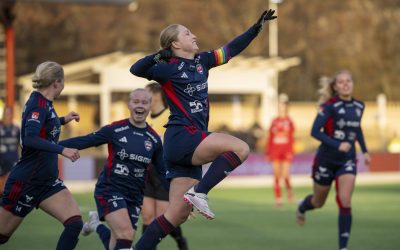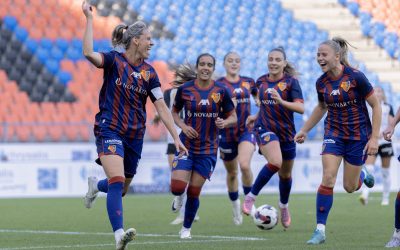Michele Kang is on a mission. And no one would doubt that the American businesswoman will do everything to see it through. Kang made her fortune in medical technology and venture capital. Now, she is trying to change the landscape of women’s football at an astonishing pace. “I’m on a mission to prove that women’s sport is good business,” Kang told The Guardian in August. “This is not charity. Absolutely not. This is a serious investment. As a woman, I think it’s almost insulting that these world-class athletes are seen by some people as some sort of DEI [diversity, equity and inclusion] project,” she said, debunking one of the most popular narratives about investing in women’s sport.
Kang owns clubs in England (London City Lionesses) and the US (Washington Spirit). If all goes to plan, this list will grow. Kang aims to own at least one club on every continent, making women’s football a truly global phenomenon. But the most interesting investment in her portfolio is undoubtedly OL Féminin.
There are two aspects that make Kang’s investments so unique, creating a new model in women’s football that could find many imitators. Firstly, Kang has created the first multi-club network in women’s football. Secondly, her investment in OL Féminin shows that more women’s teams could be separated from the men’s club for investment purposes in the future.
Autonomy and investments for the women’s side
When she announced in May 2023 that she would become the new majority owner of OL Féminin, it was a revolutionary step: Splitting the women’s team to create new business opportunities had previously seemed inconceivable. Kang admits that “spinning off a women’s team that’s part of a men’s team is a very complicated business”, and that paperwork issues complicated the deal.
In the end, however, the deal went through and Kang now owns 52.9% of OL Féminin, with the rest belonging to the OL Groupe, which also owns the club. Kang’s ambitions at Lyon seem to know no bounds. She wants to tick every box. Build a bigger stadium? Check. At the moment, Lyon’s stadium is more of a training pitch with a capacity of 1,500. Build new training grounds? Check. Hire more staff and treat the players like women, not little men? Check.
“She saved OL Féminin”: How kang changed the club
While the search for a new stadium may seem complicated, much has already changed in a short space of time. Kang has already raised standards, hired more than twenty staff and forged closer ties with the fans. The club’s supporters have enthusiastically received her initiatives. “Her investment has saved OL Féminin,” says Willy Pasche, vice-president of the largest supporters’ group, OL Ang’Elles. “This is a huge opportunity for OL.”
When Kang took over, the club itself was on a slippery slope. Since American businessman John Textor became Lyon’s owner in 2022, the club’s finances have deteriorated considerably. With debts reportedly in excess of € 500 million, Lyon’s men face relegation to Ligue 2 if the financial situation doesn’t improve. Kang’s investment in the women’s side gives OL Féminin a degree of autonomy. Thus, the Women’s Champions League record champions aren’t likely to suffer from the shortcomings of the men’s side. Too often in history, clubs in financial trouble have chosen to cut the women’s budget first. The separation of the two sides, while complicated, may help to mitigate this risk.
Multi-club ownership: A new trend?
Kang’s investment has also led to the first multi-club approach to women’s football. She has set up an organisation called Kynisca to bring together OL Féminin, London City Lionesses and Washington Spirit. The aim is innovating training methods in women’s football and sharing information and expertise between the clubs.
In the men’s game, though, multi-club ownership has also led to conflicts of interest and transfers between affiliated clubs at abnormally low prices. Kang has said that she is aware of these issues. However, she believes that multi-club ownership is inevitable given the urgent need for investment in women’s football. Whatever the next steps at Lyon, Kang’s model has already changed the business world of women’s football and set a precedent.
Text by Helene Altgelt



